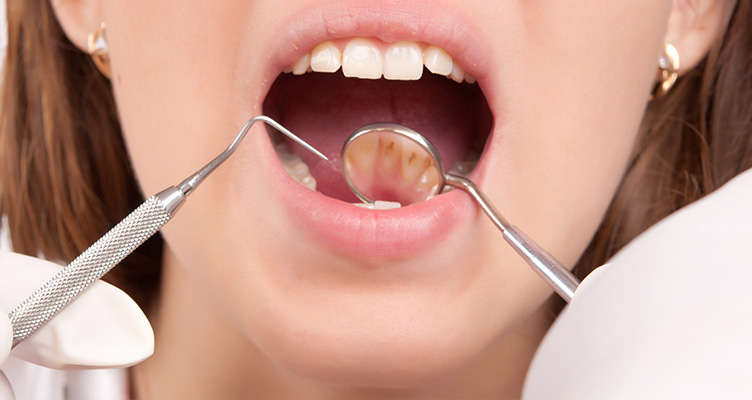Plaque: Causes And Effect On The Teeth

Top 10 Benefits Of Drinking Green Tea
June 20, 2021
7 Reasons Why It Is Bad To Starve For Weight Loss
August 4, 2021Plaque is a slippery, sticky, and colorless film of bacteria that appears on the teeth. They are sometimes referred to as bacteria film. It is a group of living microbes surrounded by a sticky surface. The role of the sticky coating is to aid the microbes in attaching to the surface of your mouth so they can multiply into a growing community. Plaques are most noticeable when the teeth are not brushed. Everyone has them to some extent but brushing, flossing, and regular visits to the dentist reduces the likelihood of plaques developing into tartar.
READ ALSO: The Top 5 Worst Foods For Your Teeth
Causes of plaque
Plaque is almost unavoidable as you cannot completely remove bacteria from the human mouth. However, it worsens with a lack of proper oral hygiene, like not brushing or flossing regularly. Another cause of plaques is the consumption of sugary foods, drinks, milk, cakes, candy, carbohydrates, starch, etc. These foods, when left on the teeth, can be fed on by bacteria which yields acids in the process. When good oral hygiene is not properly taken into place, these acids can lead to gingivitis, cavities, and tooth decay which can eat off the support for your teeth. Plaques can further harden into tartar. Tartar can build up in the inside and roots of the teeth, which can be removed by only a professional. The most apparent way to identify a plaque is by the fuzzy feeling you get when you run your tongue over your teeth.
Effects
Asides from the formation of tartar, there are other effects of plaque, especially when it hasn’t been properly taken care of. They include:
- Loss of teeth
- Pain in the teeth
- Bad breath
- Difficulty in chewing
- Tooth sensitivity to cold or hot food
- Mouth pain.
- Swelling in the mouth
- Redness inside and/or outside the mouth
- Bleeding, and swollen gums are also symptoms of plaque.
Ways to prevent the build-up of plaque on your teeth
It is important to see your oral hygienist when any of these symptoms are noticed. Lack of treatment or prevention of plaque can have a serious toll on your oral health, which is both painful and expensive. To prevent the buildup of plaque in the teeth, it is advised to:
- Brush your teeth at least twice a day.
- Use a soft brush and toothpaste with fluoride or baking soda to brush your teeth.
- Brush the area where your gums and teeth meet, which is equally as important as the tooth.
- Visit the dentist at least twice a year to check in with your oral health.
- Always floss after each meal because food particles can store up in hidden places in the teeth.
- Use an antibacterial mouthwash, especially after consuming sugary food.
- Eat more healthy foods and reduce the amount of sugary or starchy food consumed.
Plaques can be treated personally, but when it builds up in the teeth, only a professional can treat it, only if it hasn’t done much damage to the teeth and gums.

